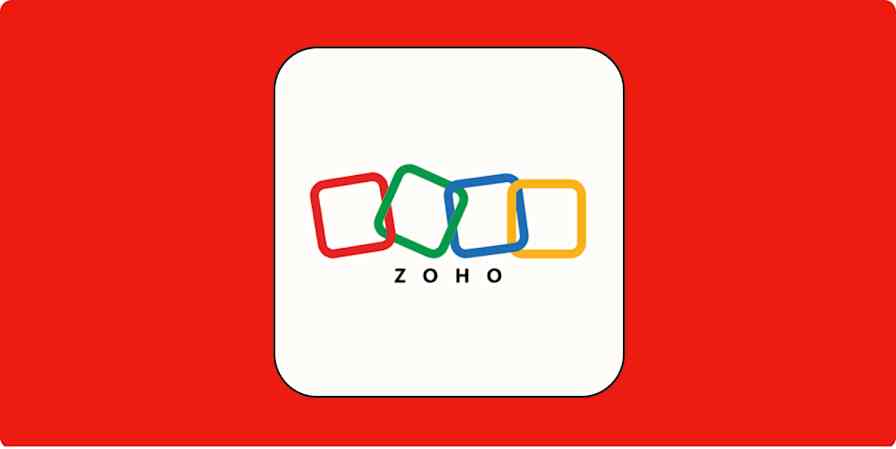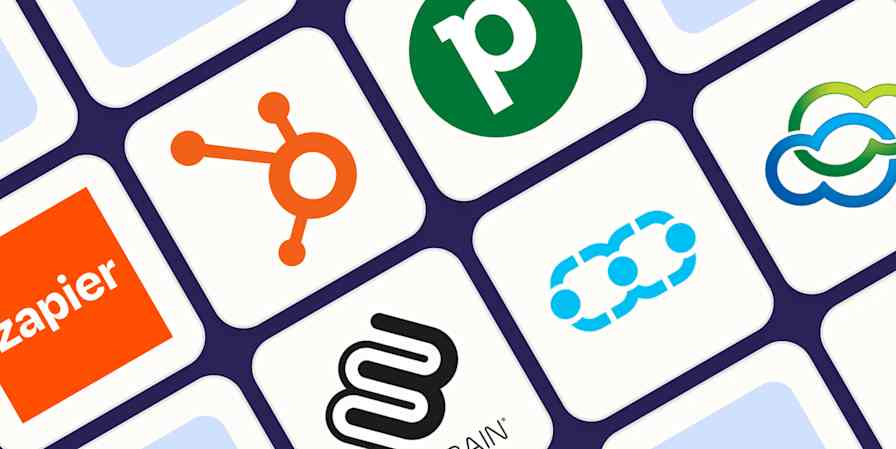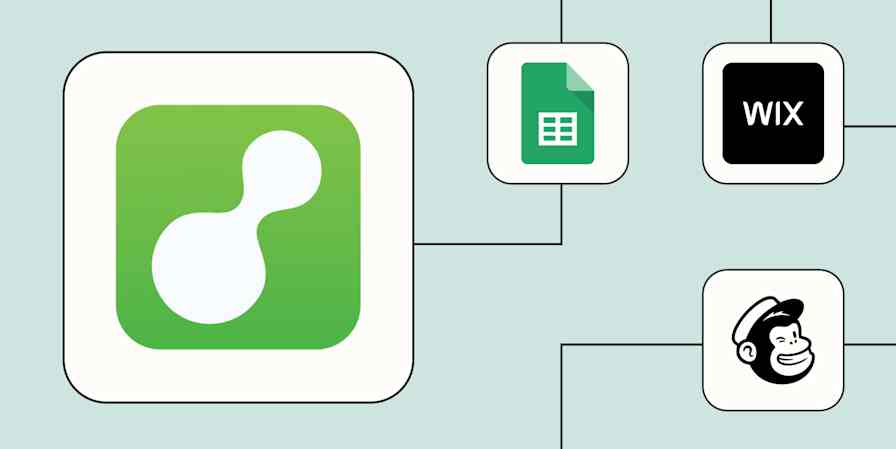NetSuite is something of a Swiss Army knife of business tools. Finance management? Check. Customer data? Sorted. Your DoorDash order preferences? Catalogued and probably color-coded if you so desire.
If you like your business operations tools to be one-stop shops, this cloud-based business management software may be the single integrated platform your little Post-it note-loving heart has always wanted.
In this article, I'll explain what NetSuite is, what it does, and how (and why) many businesses are using it to simplify their operations.
Table of contents:
What is NetSuite?
NetSuite, owned by Oracle, is a cloud-based business management software that lets you manage your company's financials, operations, and customer interactions within the same tool.
This unified approach is where NetSuite shines. Essentially, everything talks to each other: your sales, inventory, accounting, and customer data all live in one integrated system. No more hunting down scattered info or painstakingly de-duplicating entries—just real-time insights that help you make smarter decisions and improve connections with every team across your organization.
At its core, NetSuite is an enterprise resource planning (ERP) system, meaning it brings together the big operational players like financial management, inventory management, order management, and procurement. But it also throws in capabilities beyond ERP, like customer relationship management (CRM) and eCommerce, making it a one-stop shop for companies looking to scale and streamline complex operations.
Is NetSuite a CRM?
NetSuite has CRM capabilities, but it's much more than that. It's designed to handle financials, inventory, procurement, and operations first.
This means the CRM capabilities are just a fun little bonus, not its primary function. If your business is only looking for a customer relationship management tool without the need for operational support, a CRM like Salesforce or HubSpot might be a better fit.
What is NetSuite used for?
NetSuite is sort of a multi-tool when it comes to applications. Here's a glimpse into the many features that make it a widely popular business management solution.
Financial management
NetSuite's financial management tool keeps your business finances on track with real-time insights, streamlined daily transactions, and automated accounting tasks.
You get a clear view of cash flow, revenue, and expenses, so no more scrambling to understand where your money's going. For example, NetSuite's financial management dashboard gives you a quick look at your key performance indicators (KPIs), making it easy to gauge your business's performance at a glance.

It also helps with planning and budgeting, whether you're looking at company-wide finances or department-specific goals. You can create budgets, make forecasts, and even model "what if" scenarios to see how different financial decisions might play out. NetSuite can also generate reports quickly, giving you the numbers you need when you need them.
Inventory management
NetSuite helps you monitor inventory levels, warehouse operations, and supply chain logistics in real time. This makes it easier to prevent stockouts, reduce excess inventory, and fulfill orders on time.
The main dashboard gives you a unified view of inventory across all sales channels—warehouses, retail stores, or drop shipping—so you'll always know exactly where your stock is and how to manage it easily.

NetSuite's replenishment feature also takes the guesswork out of restocking. It analyzes historical sales data, seasonal trends, demand fluctuations, and even supply chain roadblocks to determine when it's time to reorder. So you can wave goodbye to those awkward, "Uh oh, we're out of stock!" moments.
Procurement
NetSuite's procurement tool streamlines the process of buying goods and services by directing purchase orders to approved suppliers and leveraging pre-negotiated contracts. With centralized management of vendors and procurement activities, you can gain better visibility into company spending, vendor performance, and departmental expenditures.
Everything you need, from transactions to performance metrics, comes together in a single, easy-to-navigate procurement dashboard so you can make informed decisions without complexity.

You can also keep tabs on indirect procurement activities with NetSuite SuiteProcurement. It's built to make buying those indirect goods and services a lot easier and more efficient.
For example, if you're purchasing office supplies and marketing materials, SuiteProcurement helps you track those expenses and stay within budget. It also gives you better visibility into how these costs impact your overall spending so you can make smart financial decisions.
Customer relationship management (CRM)
NetSuite's CRM tool helps you keep track of interactions with customers, partners, and suppliers, making it easier to create relevant, personalized experiences at every touchpoint. You have a full picture of customer preferences, transactions, and interactions, so your sales, marketing, and support teams can tailor their approach.

NetSuite's CRM gives your sales teams real-time access to prospect and customer data, streamlining everything from opportunity management and quotes to order fulfillment and commission tracking. This seamless integration and real-time data gives sales performance a leg up and can even increase close rates since your team's working more efficiently.
Human resources
SuitePeople streamlines HR processes and connects them directly with payroll and financial data. This provides a full view of how your team's performance is tied to financial outcomes, helping you make smarter, more informed decisions.
SuitePeople also boosts employee engagement by making it easy to set goals, conduct performance reviews, and run recognition programs. The result? Happier, more productive employees who stick around longer, ultimately driving growth for your business.
Professional services automation
NetSuite's professional service automation (PSA) tool, which includes SuiteProjects and SuiteProjects Pro, is an add-on to their core suite of services designed to simplify the entire project lifecycle. It handles everything from budgeting and forecasting to staffing, billing, and reporting in one place.
The platform also comes packed with tools for resource management, like resource allocation, scheduling, and utilization tracking—so you can ensure the right people are working on the right projects at the right time. And the best part? It automatically takes care of project accounting and billing.
And just like the other NetSuite tools, NetSuite PSA gives you real-time visibility into your projects. You can track project statuses, progress, and performance through customizable dashboards and reports.
Global business management
OneWorld is NetSuite's tool for managing global business operations—think subsidiaries, units, and entities—from a single, AI-powered ERP. It simplifies international business operations by supporting multiple languages and handling international transactions.
OneWorld also helps ensure compliance with local regulations by adapting to country-specific requirements, and it provides real-time financial and operational insights to guide design-making.
Essentially, it’s the ERP that just keeps on giving.

Core NetSuite capabilities
All those features above wouldn't be possible without a robust set of core capabilities like:
Cloud-based accessibility: NetSuite's cloud-based nature lets you access crucial business data anywhere, anytime. This means your team can work with real-time information, collaborate smoothly, and avoid IT maintenance costs.
Automation: NetSuite automates tasks across departments, triggering actions, sending notifications, generating reports, and reducing manual data entry. You can automatically reorder inventory when stock levels hit a certain threshold so you never run out of key products. Or score leads based on engagement and trigger follow-up emails, helping your team easily prioritize high-value prospects.
Unified platform: Never juggle a million different software tools again. NetSuite brings finance, sales, marketing, operations, and customer service together so everyone stays on the same page with real-time data.
Reporting and analytics: NetSuite turns raw data into custom dashboards, reports, and analytics, helping you track KPIs, spot trends, and make smarter business decisions.
Customization: With customizable fields, workflows, dashboards, and integrations, you can adapt NetSuite to fit your exact business needs.
Scalability: Whether you're a startup, a growing mid-size company, or an enterprise, NetSuite scales with you, making the long-term investment totally worth it.
AI: NetSuite is with the times, integrating advanced AI features across its platform. This includes features like predictive analytics, automated financial forecasting, and intelligent inventory management to help your business stay ahead of the curve.
How does NetSuite compare to other ERP systems?
We're not here to play favorites. The best ERP software is the one that fits your business needs. Here's how NetSuite stacks up against other popular solutions:
NetSuite vs. SAP: NetSuite is agile, cloud-native, and built for growing businesses, while SAP is designed for massive enterprises with complex needs. NetSuite wins on ease of use, flexibility, and customization, while SAP stands out in global compliance and regulation-heavy industries like automotive, banking, and oil and gas.
NetSuite vs. Microsoft Dynamics 365: NetSuite is a comprehensive, genuinely cloud-native platform with extensive customization options across multiple business functions, making it perfect for organizations looking for a truly all-in-one solution. Microsoft Dynamics 365 shines for businesses already living and breathing Microsoft products. It offers seamless integration with 365 products, familiar interfaces, and more cost-effective implementation for Microsoft-centric organizations.
NetSuite vs. Sage Intacct: NetSuite is a full-scale ERP designed to handle complex operations across multiple industries, whereas Sage Intacct specializes in financial management. If you're running a professional services firm or a nonprofit and need top-tier accounting and financial reporting, Sage Intacct is solid. NetSuite is best if you need a comprehensive ERP that goes beyond finance since it offers a broader set of features to support inventory, eCommerce, CRM, and more.
Automate NetSuite with Zapier
NetSuite is a powerhouse on its own, but with Zapier's automation magic, you can take it even further. Connecting NetSuite to Zapier's 7,000+ app integrations allows you to streamline workflows, reduce manual entry, and improve efficiency across your business—even for software NetSuite doesn't integrate with natively.
For example, you can automatically create records in NetSuite when new leads are captured or purchase orders come through, generate invoices and financial reports in NetSuite when payments are processed, or update your NetSuite inventory when stock levels change in your eCommerce apps. Learn more about how to automate NetSuite, or try one of these pre-made workflows.
More details
More details
More details
Zapier is a no-code automation tool that lets you connect your apps into automated workflows, so that every person and every business can move forward at growth speed. Learn more about how it works.
Related reading:










